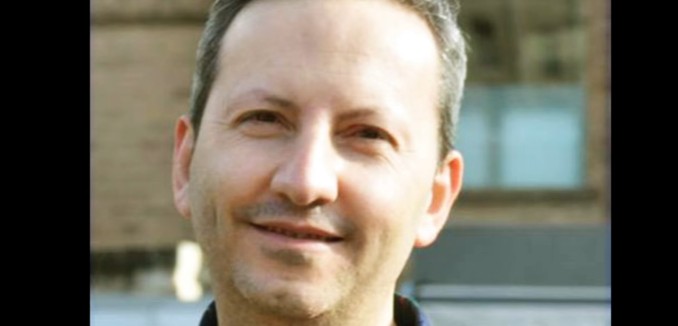Several European governments are protesting Iran’s treatment of an Iranian scientist with Swedish residency who was arrested last year and could soon face the death penalty, The New York Times reported Monday. It is the latest example of a Western citizen or resident being detained by Iran on questionable charges.
Ahmadreza Djalali, a doctor who specializes in disaster medicine and who was teaching at Vrije Universiteit Brussel in Belgium, was arrested last April while visiting Iran for a conference. Djalali’s wife, who lives in Sweden with their children, told an Italian newspaper that her husband had been charged with the “death penalty for collaboration with enemy states.”
The Jerusalem Post reported earlier this month that Djalali’s research led him to be in contact with scientists from countries that Iran considers hostile, including Israel.
Djalali had been “invited to attend workshops about disaster medicine at universities in Tehran and Shiraz, when he was arrested without a warrant by Ministry of Intelligence officials,” according to Amnesty International. At the notorious Evin Prison, according to Amnesty, Djalali “was subjected to intense interrogations and was forced under great emotional and psychological pressure to sign statements,” and was not allowed visits from his lawyers.
Djalali, who has been on a hunger strike since December 26 when he refused to sign a confession, was taken to a revolutionary court, where he was told that he was being charged with espionage. His defense lawyer, who was not present at that hearing, said that indictment has been issued and no trial date has been set.
The Swedish embassy in Tehran has requested consular access to Djalali but has received no word back from Iran. Iran does not recognize dual citizenship and is not likely to grant such access.
The doctor has taught at universities in Italy, Belgium and Sweden, and those three nations have been attempting to express their concerns about his treatment with Iran’s leadership. The Italian government said in a statement that it had “activated its channels of communication with the Iranian authorities to highlight its extreme concern.” Swedish Prime Minister Stefan Lofven told a newspaper that he had promised to bring up Djalali’s fate with the Iranian government. And the foreign minister of Belgium has also expressed his concerns over Djalali’s treatment.
Many Western dual nationals or residents are currently being held by Iran. Last month, Iran upheld a five-year sentence for British-Iranian charity worker Nazanin Zaghari-Ratcliffe, who was arrested last year, separated from her two-year-old daughter, and later charged with attempting to overthrow the government.
Other dual nationals currently detained in Iran include U.S. resident Nizzar Zakka, an internet freedom activist who was was sentenced to 10 years in prison in September for spying despite having been invited to Iran by one of its vice-presidents; Siamak Namazi, a businessman who advocated for closer ties between the U.S. and Iran, who was sentenced alongside his 80-year-old father to ten years in prison in October; and Reza Shahini, a 46-year-old San Diego resident who was sentenced to 18 years in prison later that month for espionage-related charges and “collaborating with a hostile government.”
Canadian-Iranian scholar Homa Hoodfar, who was arrested last year when she returned to Iran to see her family, was released at the end of September—on the same day that Iran announced that it was holding talks with the Canadian government about reopening embassies in each other’s countries. Hoodfar told CBC News after returning to Canada that her interrogators “threatened to send my dead body back to Canada,” and that she was originally arrested for “dabbling in feminism” before having her charges arbitrarily changed to helping a hostile government subvert national security.
Hoodfar’s experience echoed that of Jason Rezaian, the Washington Post reporter who along with four other Americans was released by Iran in January 2016 on the same day that the Islamic Republic received a shipment of $400 million in cash. Rezaian and two family members have filed a federal lawsuit against Iran, claiming that Rezaian was taken hostage and tortured in order to “extort” concessions from the United States during nuclear negotiations. The suit also alleges that Rezaian “suffered such physical mistreatment and severe psychological abuse in Evin Prison that he…will require specialized medical and other treatment for the rest of his life.”
In Why Does Iran Keep Taking American Hostages?, published in the September 2015 issue of The Tower Magazine, Iran expert Ali Alfoneh described the regime’s detainment of foreign and dual-nationals as “a perfectly normal procedure and political practice in the Islamic Republic. That has been the case since the first day of the revolution and continues until today.”
[Photo: vcoazzurra TV / YouTube ]




